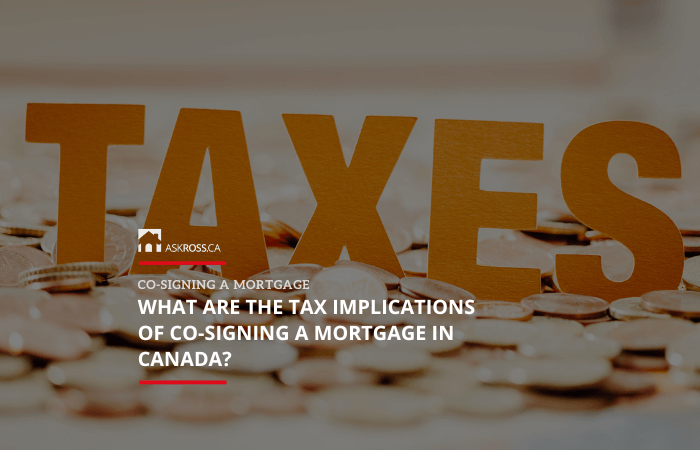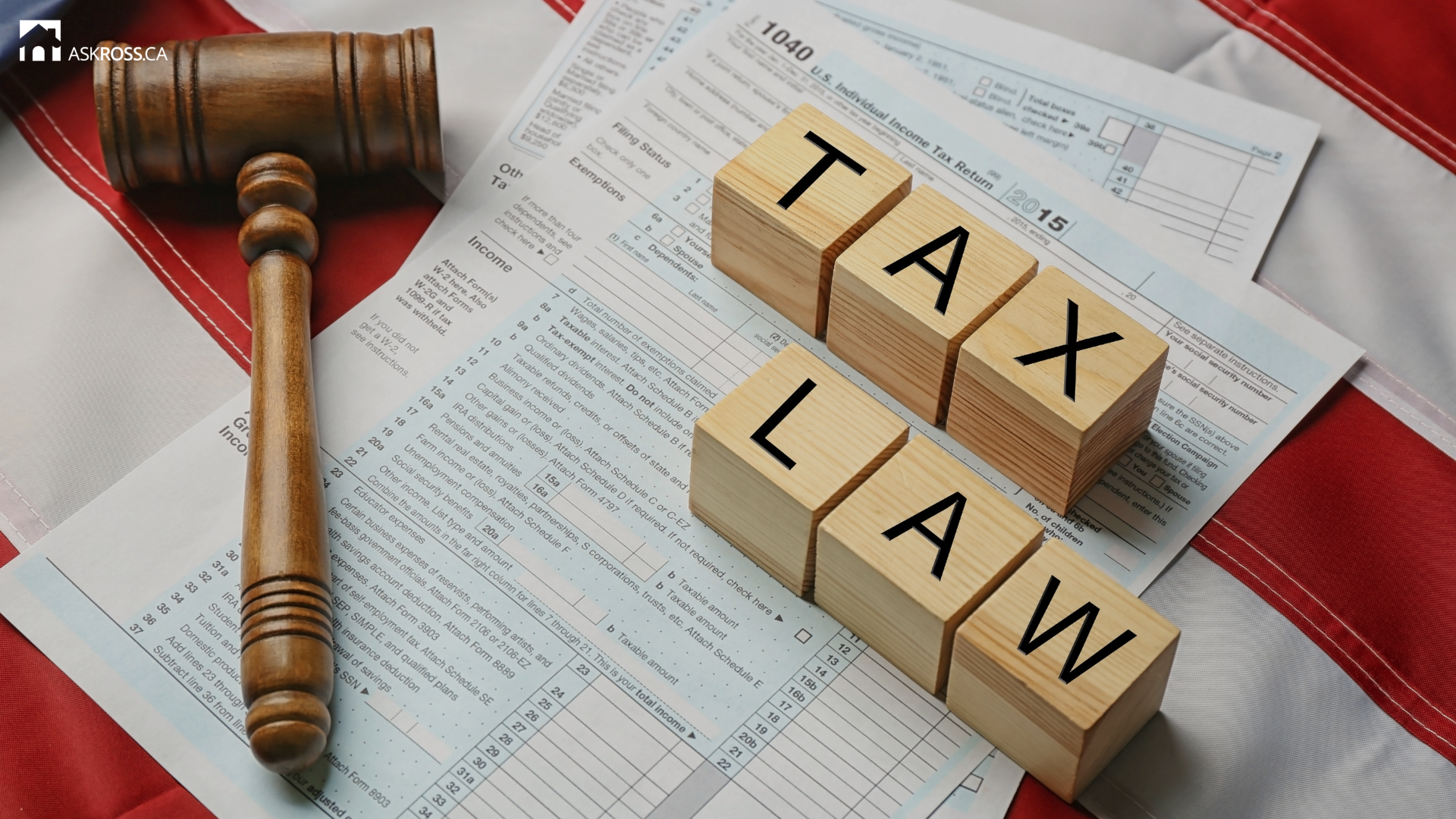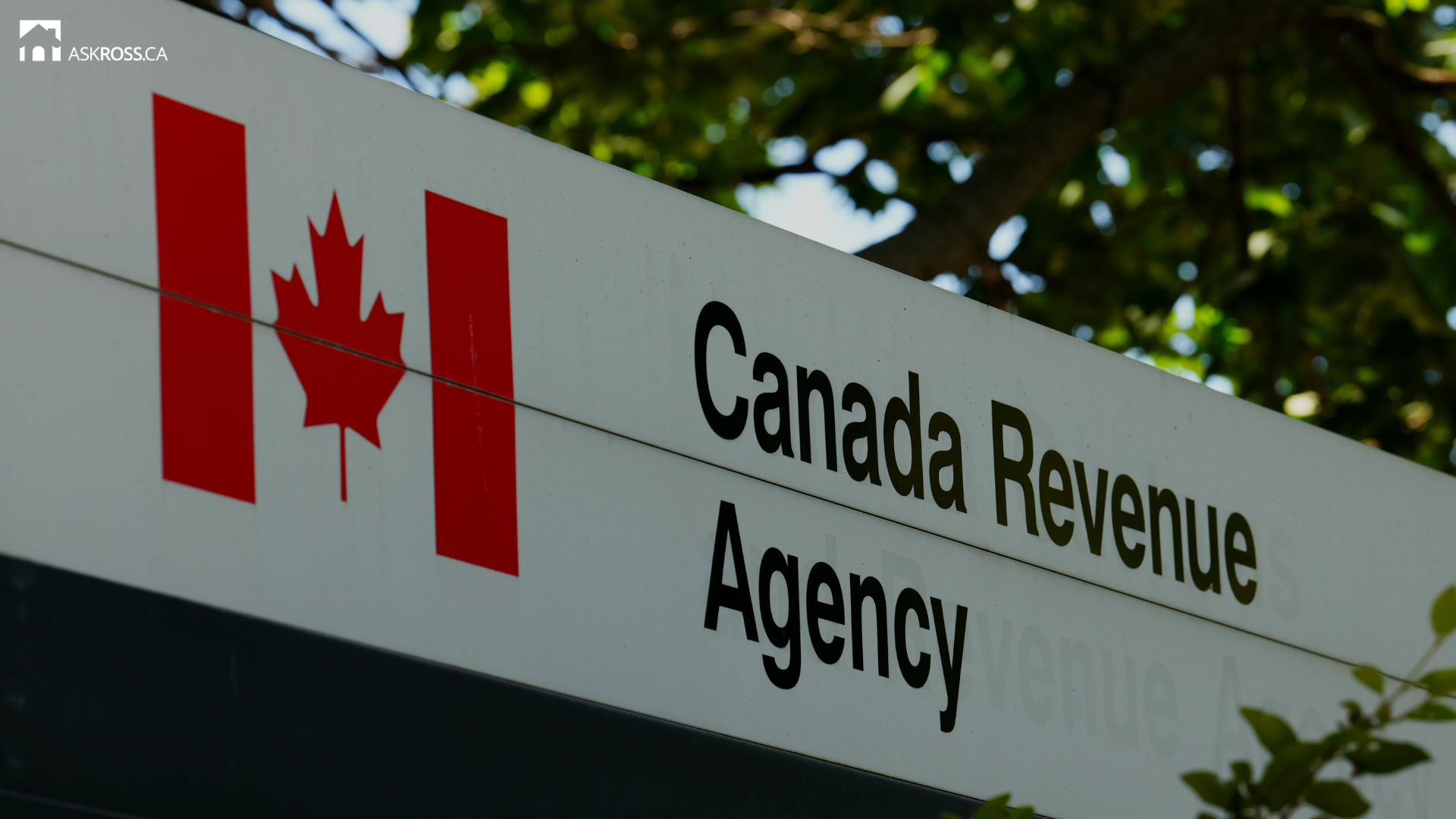
Published: November 14th, 2024 • Last Updated: June 6th, 2025
Author: Ross Taylor on AskRoss.ca
P1: What You Need To Know About Cosigning a Mortgage
In this four-part series on “What You Need To Know: Cosigning a Mortgage,” we’ll cover everything you need to know before entering into a co-signing arrangement. If you’re ready to co-sign but want to avoid financial surprises, this is your guide to start with.
Once you’re clear on the tax details, stick around for part two, where we’ll discuss seven essential steps for a smooth co-signing process with a family member.
For more info, visit our Mortgage Co-signing FAQ or read our original article on this topic: When Do You Need a Co-Signer For Your Mortgage? – Ross Taylor.
Jump to a specific section in this article ↓↓
- What is capital gains tax?
- How does income reporting affect my taxes as a co-signer?
- What are bare trust agreements?
- What about tenants in common?
- Probate Fees – What if your co-signee passes away?
- What are the new reporting requirements?
Make sure to check out the rest of our – “What You Need To Know: Cosigning a Mortgage” series
Our comprehensive four-part series, where we teach you everything you need to know about cosigning for a mortgage in Canada:
- What Are The Tax Implications of Co-signing a Mortgage in Canada?
- What Are The 7 Essential Steps To Take When Co-Signing A Mortgage For A Family Member?
- 7 Risks & Essential Tips For Co-Signing A Loan For Someone With Poor Credit
- How Does Having a Co-signer Affect My Eligibility For First-Time Home Buyer Incentives in Canada?

6 Key Tax Implications For Co-signing a Mortgage in Canada
As a seasoned mortgage broker, I often get asked about the tax implications of co-signing a mortgage in Canada.
It’s a common scenario, especially with crazy high real estate prices, where parents or family members step in to help their loved ones achieve (or sustain) the dream of homeownership.
However, it’s crucial to understand the potential tax consequences before taking on this responsibility.
Co-signing a mortgage can be a powerful way to help a loved one enter the housing market, but it’s essential to understand the tax implications. From capital gains tax to CRA reporting requirements, this article breaks down the hidden tax consequences that can catch co-signers off guard.
↑↑ Back to the list at the top ↑↑

1. What is capital gains tax?
One of the most significant tax implications of co-signing a mortgage is the potential for capital gains tax. When you co-sign a mortgage, you become a part-owner of the property. This means that if the property appreciates in value and is sold, you may be liable for capital gains tax on your portion of the ownership.
Example capital gains tax scenario:
- Suppose you co-sign a mortgage for a condo in Toronto with your daughter, and you’re listed as having a 1% ownership stake. Over the years, the condo’s value has risen significantly.
- When it’s sold for a 200% profit after a decade, despite only having a minor stake, you would need to calculate capital gains tax on that 1% gain.
So if the initial purchase price was $500,000 and it sold for $1,500,000, your 1% share of the gain ($10,000) would be subject to capital gains tax, for which you would owe taxes on 50% of that gain.
↑↑ Back to the list at the top ↑↑

2. How does income reporting affect my taxes as a co-signer?
If you receive any rental income from the property as a co-signer and part-owner, you must report that income on your tax return.
It doesn’t matter if you’re not primarily managing the property – if your name is on the title, the CRA considers that income partly yours.
↑↑ Back to the list at the top ↑↑

3. What are bare trust agreements?
Some co-signers opt for a bare trust agreement to mitigate the risk of capital gains tax. This legal arrangement, executed by a lawyer prior to or on the day of the purchase, clearly states that the co-signers have no beneficial interest in the property and are simply there to strengthen the mortgage application.
However, it’s important to note that a bare trust agreement isn’t foolproof. The Canada Revenue Agency (CRA) may still challenge the arrangement and ask for proof that the co-signers are truly bare trustees.
This means demonstrating that the primary borrowers provided the down payment and have been solely responsible for the mortgage payments and property upkeep.
Example of using a bare trust agreement:
- You help your son purchase a home by co-signing the mortgage and setting up a bare trust agreement indicating that you hold no beneficial interest in the property.
- Three years later, the CRA decided to review the arrangement during an audit.
You must then provide documentation proving that your son furnished the down payment and consistently managed all mortgage payments and maintenance costs, confirming that you hold no economic stake in the property.
↑↑ Back to the list at the top ↑↑

4. What about tenants in common?
If a bare trust agreement isn’t feasible, another option is registering the ownership as tenants in common, with the co-signers having a small percentage of ownership (e.g., 1%).
Example of when to use tenants in common:
- You and your friend decide to invest in a rental property, with you co-signing the mortgage. To minimize tax implications, you agree to be registered as common tenants, holding a 5% ownership interest.
This approach can help minimize the co-signer’s exposure to capital gains tax when the property is sold, while still allowing the primary borrowers to claim the majority of the land transfer tax rebate as first-time homebuyers.
More on first-time homebuyer incentives is listed here.
↑↑ Back to the list at the top ↑↑

5. Probate Fees – What if your co-signee passes away?
Here’s something a lot of folks don’t think about – if one of the property’s co-owners passes away, probate fees (also known as estate administration tax) may apply to the deceased’s share of the property. In Ontario, we’re looking at about 1.5% of the value of the assets.
How much is owed can depend on the percentage of ownership in the co-signer’s name. Having assets pass outside the estate, like through joint ownership, could help reduce these fees.
↑↑ Back to the list at the top ↑↑

6. What are the new reporting requirements?
It’s crucial for Canadians to assess whether they’re part of a bare trust arrangement and take steps to become compliant with these new reporting requirements.
As of the 2025 tax year, bare trusts must be reported to the CRA. If you’re part of a bare trust agreement, such as co-signing a mortgage, you must file a T3 Trust Income Tax and Information Return.
“All trusts, unless specific conditions are met, must file a trust return and schedule 15 for tax years ending after December 30, 2024. For bare trusts, the CRA has waived the requirement for the 2023 and 2024 tax years.”
Rob Carrick from the Globe and Mail published an update on this topic on August 14, 2024
↑↑ Back to the list at the top ↑↑

Seek professional advice always.
Given the complexity of tax laws and the potential long-term implications of co-signing a mortgage, it’s always wise to consult a mortgage professional, a tax accountant, and a real estate lawyer before proceeding.
They can provide personalized advice based on your specific situation and help you navigate the various tax considerations.
Co-signing a mortgage is a significant financial commitment that shouldn’t be taken lightly. By understanding the tax implications and exploring strategies like bare trust agreements or tenants in common ownership, you can make an informed decision that balances your desire to help your loved ones with your own long-term financial well-being.
If you have any questions about co-signing a mortgage or the associated tax implications, please don’t hesitate to contact us.
Stay tuned for Part 2 in our “What You Need To Know: Cosigning a Mortgage,” where we’ll discuss seven essential steps to follow when co-signing a mortgage for a family member.

Ross Taylor Mortgages
If you want great service from someone you can trust – reach out to us today.

 Apply For a Mortgage
Apply For a Mortgage